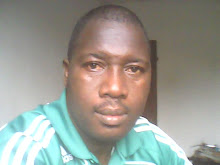ELECTORAL REFORMS AND PDP’s ROTATIONAL PRESIDENCY
There is no doubt surrounding the fact that democracy is the best form of government ever known to man. Even so, many democratic societies and its citizens still suffer gross underdevelopment and abject poverty owing to poor political leadership culture. This sad reality has elicited a whole lot of debate among political scientists, journalists, opinion leaders, and commentators on contemporary issues. The consensus opinion is that the masses have been robbed of their powers by the political class. It has become clear that political power no longer belongs to the people- electorates like it is supposed to be. As a result of this, the loyalty of political leaders is mostly directed at electoral umpires, god fathers, and kingmakers. It is for this simple reason that public office holders can afford to ignore the concerns of the electorates and loot the treasury.
In an effort to return power to the people, the late President Musa Yar’Adua stunned the world when he admitted openly that the election that brought him to power was faulty. He thereafter called for understanding and promised to carry out a holistic electoral reform exercise. Unfortunately, many Nigerians have failed to appreciate the true meaning of electoral reform and have therefore restricted it to mean the recommendations of Justice Mohammed Uwais-led Electoral Reform Committee.
For the avoidance of doubt, let it be noted that the main aim of reforming the nation’s electoral system would be defeated if it is not done holistically. We cannot talk of electoral reforms when there is no internal democracy within the political parties. We cannot talk of electoral reforms when some key players in the nation’s electoral body- INEC are card-carrying members of political parties. In the same vein, Nigerians cannot talk of electoral reforms when political parties are allowed to practice undemocratic traditions such as rotational presidency.
One of the major aims of reforming the electoral system is to promote quality political leadership in the country. For this very important reason, whatever action or practice that would not support this objective should be jettisoned. Rotational presidency is one of them. Apart from promoting tribalism, the culture of seclusion is undemocratic. It creates bitterness among party members and also reduces the chances of sourcing for the best hands.
My opinion is not based on the fact that I and President Goodluck Jonathan come from the same state. After all, he has not said he is going to contest the presidency in 2011. Nevertheless, there would be nothing wrong if majority of members of the Peoples Democratic Party (PDP) wants him to contest. This is the beauty of democracy. Power belongs to the people- not a party’s National Working Committee or Board of Trustee. This is the time when Nigerians should come together and work towards making every vote count and not wasting valuable time on issues that will divide the nation along tribal lines.
Perhaps, it would be necessary to highlight the reason behind the culture of rotational presidency. It is to a very large extent erroneously believed that one has to share the same tribal lineage with the president in order to secure a key appointment or win a big contract. This anomaly is hugely responsible for why tribal lineage is regarded far above every other factor in Nigerian politics. Frankly, tribal-based politics can only be rife in a country where the government pay mere lip service to the culture of transparency, accountability, justice, and fair play.
Just like I have submitted in previous write-ups, one of Nigeria’s greatest problems is tribalism. It is owing to the deep rooted nature of tribalism in the polity that successive administrations have not been able to effectively fight corruption in the country. There is an unwritten law in Nigeria that forbids citizens from exposing or prosecuting fellow tribesmen for corrupt practices. That is the reason why public servants that earns less than N12m annually will build mansions, acquire fleet of exotic cars, and own investments worth over N200m within four years without being asked to show proof of sources of funds.
Furthermore, tribalism promotes national poverty. It makes citizens to become lazy. In a tribal-infected polity, even people that sow nothing can reap bountifully simply because their tribesperson is in power. This is clearly against natural principle. The more we promote tribal agenda above democratic prescriptions, the closer we get to the source of our disintegration.
I do not know their individual names but most of the people championing calls for electoral reforms are carrying nametags that bear “Hypocrite.” That is exactly what those of them that support the culture of rotational presidency are. The reason for the reform must not be bleached to serve tribal agendas. And for those that are threatening the corporate destiny of Nigeria following speculations that Dr. Goodluck Jonathan may run for the presidency come 2011; I wish them well. They should not play God. Nigerian masses are hungry for good political leadership. Let the people be allowed to decide whom they want. It can be Jonathan or any other person. Let us stop playing God and concentrate on how to make our votes count.
Subscribe to:
Post Comments (Atom)

No comments:
Post a Comment